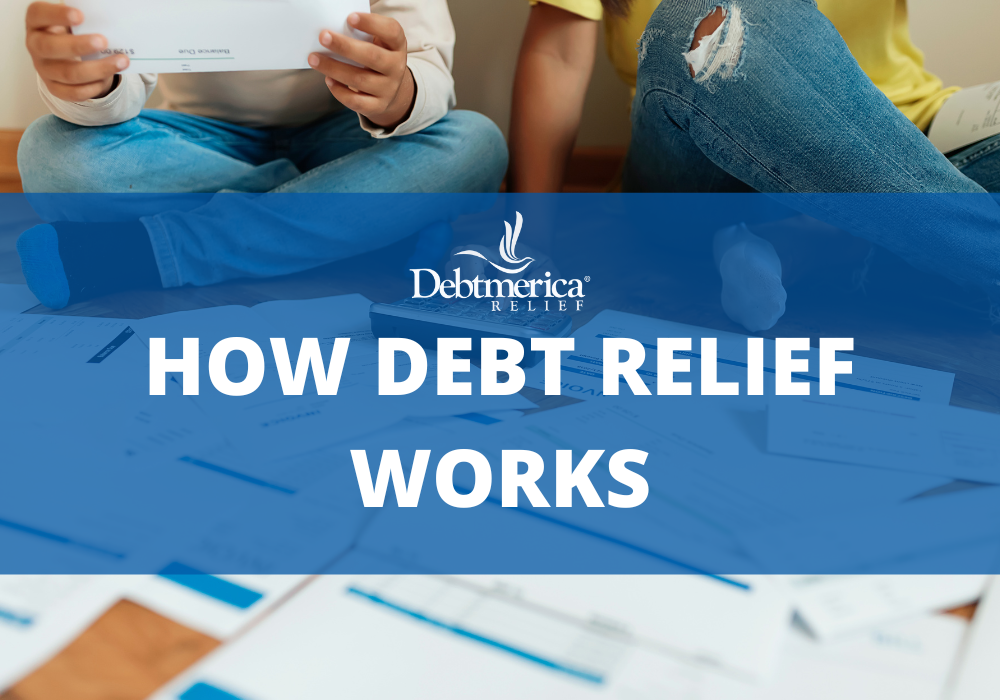How Debt Relief Works

When debt becomes unmanageable, you might investigate options for debt repayment and debt relief. While debt repayment involves paying back borrowed money to creditors, debt relief might be able to shave money off your balance owed. Here’s a breakdown of what debt relief is and how it works.
What Is Debt Relief?
Debt relief, also known as debt settlement, is when your debt is settled for less than the actual amount owed. It is typically a last resort for people who have an overwhelming amount of debt but do not qualify for bankruptcy, or just do not want to file for bankruptcy. You can pursue debt relief on your own, but many people turn to debt relief companies in hopes that experience and credibility will result in a better outcome.
How Does Debt Relief Work?
If you hire a debt relief company to help you, you’ll likely first meet for an initial consultation and financial assessment. They will determine if you qualify for debt settlement. You should note that only unsecured debt qualifies for settlement. This includes:
- Credit card debt
- Personal loans
- Credit lines
- Collections
- Repossessions
- Medical bills
- Business debt
- Some student debt
What many people don’t realize is that debt relief companies will typically advise you to stop making debt payments to your creditors. Instead, they will ask you to deposit the monthly payment into a savings account that they set up for you. While ceasing payments to your creditors can be scary, it will show that you are financially unable to continue making payments. The debt relief company will then contact your creditors on your behalf to argue that they would be better off settling the debt for a lesser amount, rather than risk not receiving another payment. The creditor will then decide if they want to settle and the two parties will negotiate a settlement.
If the debt relief company is successful in earning you a settlement, they will then typically keep a percentage of your total debt as payment.
Should I Pursue Debt Relief?
Going through the debt settlement process can be risky and time-consuming. The potential risks can include:
- Losing money to debt relief companies through fees without certainty of receiving a settlement
- Suspended payments to creditors will hurt your credit score, both through missed payments and the appearance of settled accounts on your credit for up to seven years
- No guarantee that the creditors will accept your settlement, which means lost time, missed payments, and a lower credit score and history
It goes without saying that debt relief can be a high-risk, high-reward type of situation. It will be up to you to decide if it is the right option for you. If you do decide to pursue debt relief, the most important thing to do is make sure you work with a reputable and experienced debt relief company that has a proven track record of helping their clients. Debtmerica Relief has over 16 years of experience in providing relief to our clients whose financial burdens have become too much to handle. If you need help with debt, give us a call at 800-470-8155 for a free consultation.



